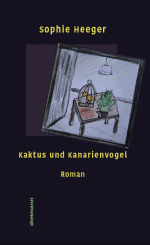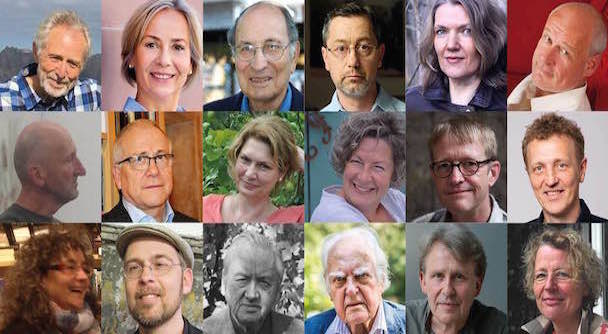Authors & Books
Sophie Heeger

Sophie Heeger was born in Frankfurt am Main in 1958. She studied medicine at the Johann Wolfgang Goethe University and completed training periods in psychiatry, surgery and internal medicine. This was followed by a doctorate on a gynecological topic. During the subsequent specialist training as an occupational physician, she cared for the Frankfurt Police Headquarters, various courts, as well as correctional facilities, among others. She is married, has three children and lives in Mainz. She works as a general practitioner in her own practice near Mainz.
Sophie Heeger began writing literature in 2009, and in 2012 her debut novel, »Mephistos Erben« (Mephisto's Heirs), was published by S. Fischer Verlag, followed by two more novels to date by her colleagues at Ullstein.

Cactus and Canary
Novel about a Double Trauma
- 208 pages
- Hardcover with ribbon
- also available as an e-Book
978-3-86638-244-2

Is this ethically justifiable: to make use of the perceptual shift of a wounded soul in order to build a narrative world?
Yes, absolutely – if it is narratively mastered, if it shows us more than superficial phenomena, if it also lets the hidden and split-off world emerge behind the visible, accessible world.
This is achieved by the author Sophie Heeger, who has become known for her crime novels (and they are rather novels than crime novels) published by S. Fischer and Ullstein Verlag. And she accomplishes this with due caution and care - toward her character Anna and toward us as readers.
As Anna, we are on the road in a dreamlike world in which a woman seems beset by nothing but the organization of a journey she herself calls »escape«. That's all that initially irritates us as we follow her to Venice, Amsterdam and Paris and she takes over a cactus and a canary in its cage from miraculous encounters. She has to hand both of them over to semi-strangers at their enticing destinations, that is her clear mission.
However, trepidation and terror soon break into the traveler's reality, the traveling woman perceives a shifting, uncertain ground beneath her feet, and she becomes the victim of figures who become more violent.
What begins as a fairy-tale narrative under Anna's point of view and almost enchants, breaks more and more to finally give way to a clear view of the dissociative perception of a severely traumatized person.








